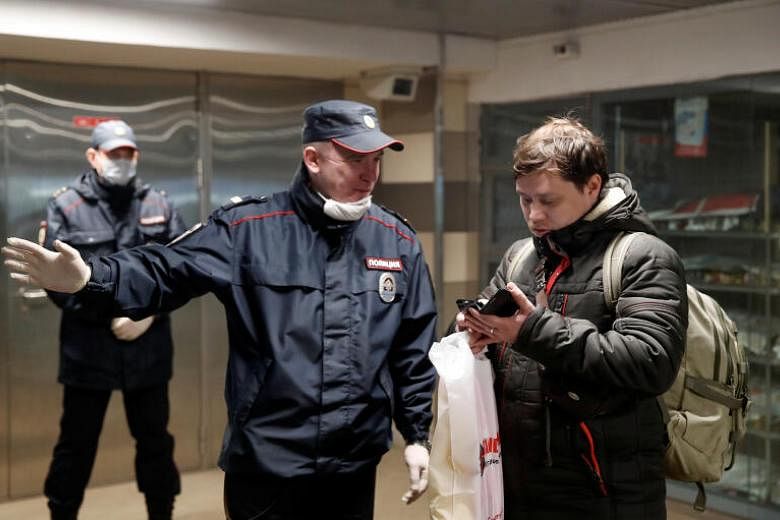MOSCOW (BLOOMBERG) - The first day of enforcement of a new system of digital travel passes in Moscow created long lines in the Russian capital's subway system as police officers individually checked each passenger.
The system, which requires a digital pass for any type of travel except on foot, is intended to slow the spread of coronavirus as Moscow's hospitals strain from the growing number of cases.
However, photos and video posted on social media showed long lines of commuters, many without masks, waiting to get their passes scanned outside of subway stations.
Mayor Sergei Sobyanin on Twitter called the big crowds of people in the subway "very critical" and said the problem was eliminated after he discussed it with the chief of police.
The system, which some critics call an unconstitutional expansion of Russia's surveillance state, has had a bumpy roll-out.
On Monday (April 13), when it went live, the website that issues the passes crashed periodically, as it struggled to keep up with demand. Even so, 3.2 million travel passes were issued on the first day.
Moscow, with a population of 12.7 million, has the busiest subway system outside of Asia, although ridership is down 85 per cent from a year ago, as the city has gone into lockdown to contain the pandemic.
The tighter restrictions introduced this week have so far had a limited impact, according to a self-isolation index based on location data gathered by Internet company Yandex NV. Moscow's rating on Tuesday was 3.2 of a maximum of five, a small improvement from 3.1 a week earlier.
The majority of coronavirus cases in Russia are located in the capital, where the number of infections rose 14 per cent overnight to 14,776.











